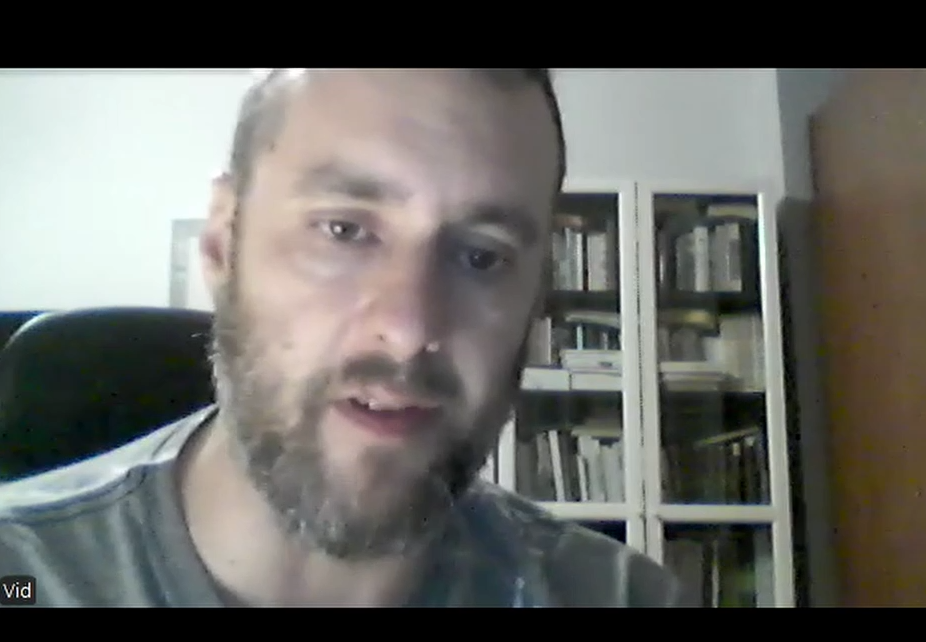By Matija Šerić
After a long time, Bosnia and Herzegovina has once again caught the attention of global media in recent weeks, but for the wrong and trivial reason. The cause of this unexpected media surge is a first-instance verdict by the Court of Bosnia and Herzegovina, which sentenced the president of the Republika Srpska entity, Milorad Dodik, to one year in prison and six years of political disqualification. Dodik was punished for failing to comply with the decisions of the Office of the High Representative for Bosnia and Herzegovina (OHR), led by Christian Schmidt.
Much Ado About Nothing
This ruling triggered a wave of reactions from the region of the former Yugoslavia, Europe, and the world, especially since Dodik announced a potential secession of Republika Srpska—an act that could ignite a new war. However, when the situation is analyzed rationally and dispassionately, the likelihood of such a scenario is very low for several reasons:
- Republika Srpska has no legal right to secede under the Dayton Agreement;
- If RS declares secession, NATO would respond militarily, as Bosnia and Herzegovina is essentially a U.S. and NATO protectorate, and any attempt would be immediately thwarted;
- Even if RS were to secede peacefully, it would not receive international recognition, and would fall into isolation, much like Serbia would, which would also face sanctions;
- Serbia recognizing RS would mean political isolation for Belgrade and the end of its European Union integration;
- Serbia cannot afford another round of international economic sanctions like those of the 1990s, from which it still hasn’t fully recovered.
This verdict has stirred political tensions, but most likely, nothing significant will happen. The status quo will remain—and the status quo is the biggest problem in itself.
The Phenomenon of Poverty in Bosnia and Herzegovina
Bosnia and Herzegovina is a “failed state,” a crisis hotspot that has continuously generated problems for the past thirty years. One of the most severe but overlooked problems in BiH is poverty. Whenever Bosnia is being discussed, it is important to emphasize that it is one of the poorest countries in Europe and the world. It is certainly the poorest protectorate state—because BiH is, in reality, neither sovereign nor independent. The most visible proofs are the presence of OHR and EUFOR—the EU peacekeeping mission in BiH.
It can be said that poverty in Bosnia has become a negative phenomenon embedded in every layer of society. Poverty is a chronic political, economic, and social disease that is thoroughly eroding the Bosnian social fabric.
Estimates indicate that BiH currently has around 3.1 million residents (the last census was held back in 2013), and a large number of them are poor. According to United Nations data, 17.5% of the population lives in extreme poverty (surviving on 3 to 5 Bosnian Marks per day), and an additional 700,000 people live on the poverty line—around 20% of the population. Every fifth person is unquestionably poor, and another fifth is on the edge—altogether around 40% of the population, or approximately 1.2 million people.
Eurostat criteria paint an even bleaker picture: the risk of poverty and social exclusion in BiH affects a staggering 58% of the population.
When we consider the scale of unemployment, low wages and pensions, general misery, and deprivation, it is no exaggeration to say that hunger exists in BiH. More precisely, broad segments of the population (excluding the political elite and businesspeople with questionable capital origins) don’t know what they will eat today or tomorrow. There are officially around 60 public kitchens in BiH, feeding more than 20,000 impoverished citizens.
In addition to public kitchens, many of the poor rely on aid packages (food, medicine, hygiene products) from the Red Cross, Caritas, Merhamet, the humanitarian organization Pomozi.ba, and others—just to survive one more day, week, or month.
Neglected: The Unemployed, Pensioners, and Students
The most affected groups are the unemployed, students, and pensioners. The unemployment rate in BiH during 2024 ranged between 12.2% and 13.5%. These are huge figures that are, in reality, even higher, as many unemployed individuals are not registered with employment offices.
Around 60–80% of unemployed people live in poverty, depending on how poverty is defined and the level of support they receive from institutions or family members working abroad (remittances).
It is estimated that 30–40% of students live in poverty or under financially unfavorable conditions, especially those without scholarships. They struggle to pay tuition and housing costs.
A shocking 80% of pensioners live in poverty, which, unfortunately, is not surprising given the meager pensions. As of mid-2024, the average pension in the Federation of BiH was 622.75 KM (€319), and in Republika Srpska 591 KM (€303.07)—four times less than the EU average.
A major problem is the aging population. Projections suggest that by 2060, more than 30% of the population will be over the age of 65. Pension systems are already inefficient, and the situation will only worsen. In short, labor and pension systems with such negative demographic trends are heading toward collapse in the not-so-distant future.
The Plague of Inflation
An increasing number of working individuals with low or average incomes are unable to survive due to inflation and the rising prices of essential goods. In 2023, inflation in BiH was over 7%, and last year around 2%. However, the increase in food and basic necessity prices was significantly higher than those official figures.
Although formal statistics do not reflect it, estimates suggest that from the outbreak of the COVID-19 crisis in 2020 to today, food prices in BiH have risen by 100 to 400% (compared to a global increase of about 20%).
These staggering price hikes have created a situation where food in Bosnia is more expensive than in Germany or France. Inflation has devastated the wallets of Bosnians and Herzegovinians. Many individuals and families have been driven to despair.
Featured image: Dnevni avaz








